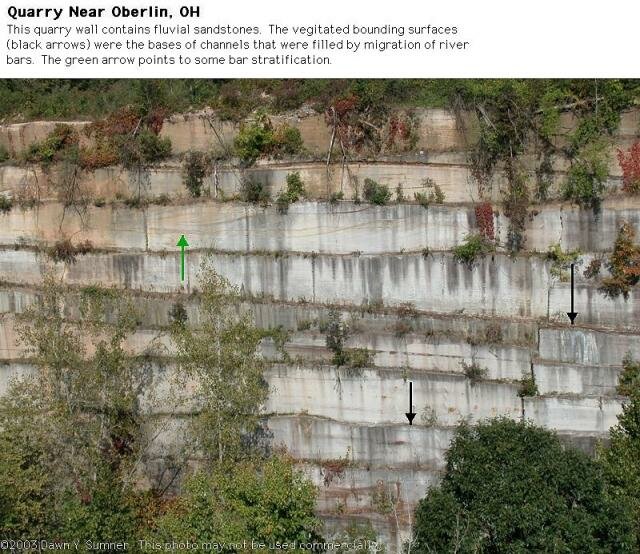'Perhaps rocks hold some of the keys to understanding sedimentary humanity, and all their mixtures' (A Thousand Years of Nonlinear History, Manuel DeLanda, 1997: p70)
Sorting machines are all around us. These sorting machines function to stratify life through taking a multiplicity of heterogeneous ‘things’ and ordering them into stratified layers. These stratified layers act as hierarchies, because the sorting machines organised the heterogeneous ‘things’ into ranking layers. Sorting machines are present in both natural and cultural environments. To demonstrate that sorting machines are both human and non-human I will describe a natural sorting machine, and then consider human sorting machines. However, as nature and humans live in flat ontology, which means they co-exist, the separation of humans and nature is an ideal separation that no longer exists. The separation is merely used to imply that sorting machines are not only a dynamic of human habits.

An example of a natural sorting machine, which could occur without human presence, is the process of geological stratification. In geology, the process of stratification means rocky materials are layered into strata, which are stacked on top of each other. The problem is these strata are not pre-formed, as ‘pebbles do not come in standard sizes and shapes, some kind of sorting mechanism must be involved here, some specific device to take a multiplicity of pebbles of heterogeneous qualities and distribute them into a more or less uniform layers’ (DeLanda p59-60). This means geological strata literally have to be constructed, and this construction requires (at least) two distinct operations. The first operation is the gathering of the rocky materials. According to DeLanda, rivers, which gather the rocky materials that (eventually) form the strata, act as verifiable hydraulic computers. Rivers transport the rocky materials from their point of origin to the bottom of the oceans, where the materials accumulate. In the river the rocky materials are sorted as various pebbles reacts differently in the water transporting them, as the various grain sizes, and intensity of the river, will determine the rate of transportation for the rocky material. The second operation of geological stratification is the collection of the loose pebbles into a large-scale entity, known as sedimentary rock. In this operation there is cementing of the components into a new emergent property, which now has properties of its own. Substa

nces in the water, such as silica or hematite, penetrate the sediment, and, eventual, cause stratification, which produces strata. (See A Thousand Years of Nonlinear History, DeLanda, p59-61).
In
A Thousand Plateaus Deleuze and Guattari make the strange, and important, claim that strata are judgements of God (ATP p45). This claim is plausible because stratification is the formation of hierarchies in the world by sorting machines. These social machines form strata, gathering different heterogeneous components, and processing them into a rank and/or order. These ranks and orders are the judgements of God. The question is therefore how do these judgements function in everyday social life? Two practical examples can illustrate the continual of judgements of ‘God’ as life is stratified by sorting machines. The first example is codification of educational (undergraduate) degrees. On the whole, the University system stratifies the educational experience into a hierarchical ranking system. This allows universities to award different levels of degrees (e.g. First Class: Second Class; Third Class). Therefore, the students proceed through the ‘university machine’ so they can become stratified. It is expected that this stratification will reflect their ‘academic knowledge’ and further their potential employability. The second example of Stratification is how Tesco use information gathered from consumers using their clubcards. This information flows into the Tesco organisation, and allows them to classification their consumers. Consumers can be classified, for example, as value customers, which means they predominantly purchase Tesco Value products, or classified as finest customers, which means they predominantly purchase Tesco Finest products. The consumers of Tesco, through using their clubcard, are transformed in larger-scale entities, which Tesco create and use for management of their business. In both Universities, and Tesco, there is judgement of ‘God’, which means a form of hierarchal stratification is occurring. It is therefore important to understand how various sorting machines are forming strata in life, both in the human and natural sciences.



